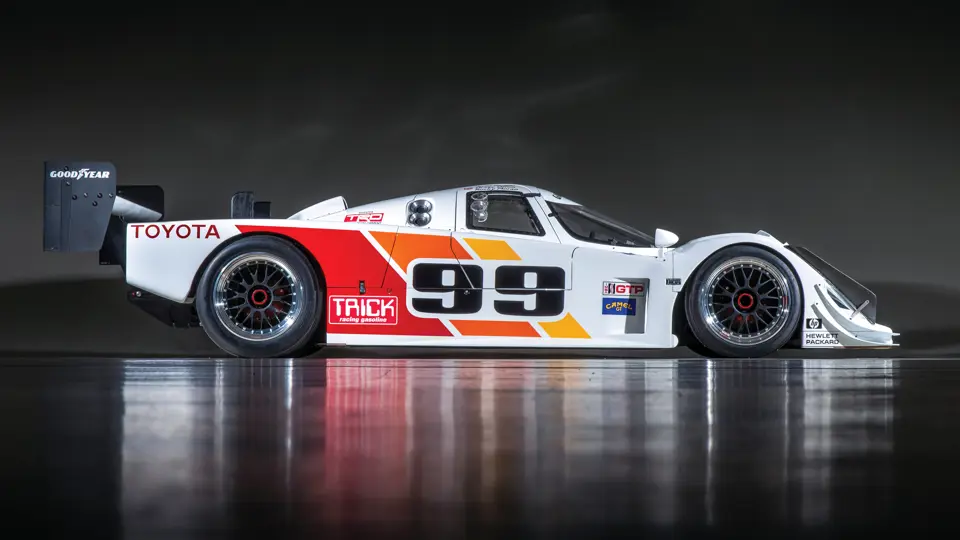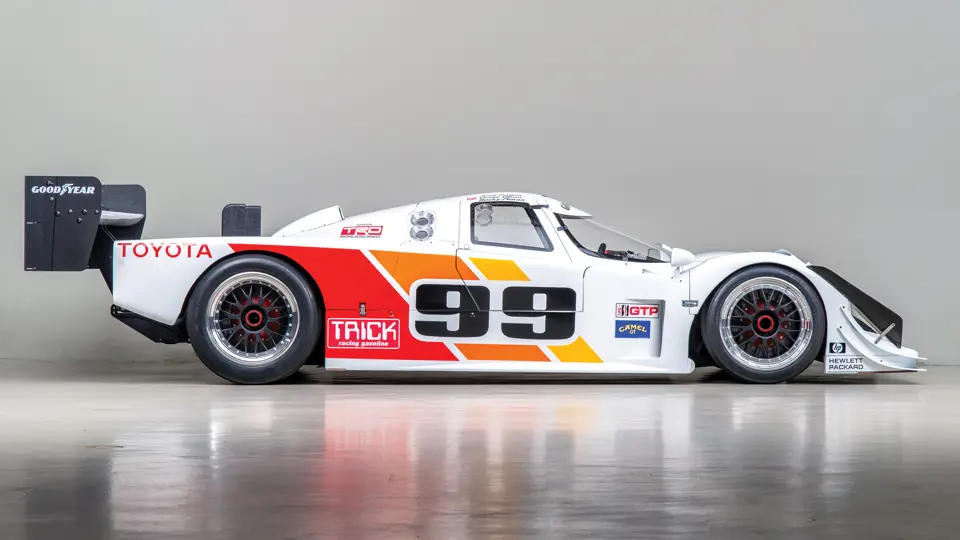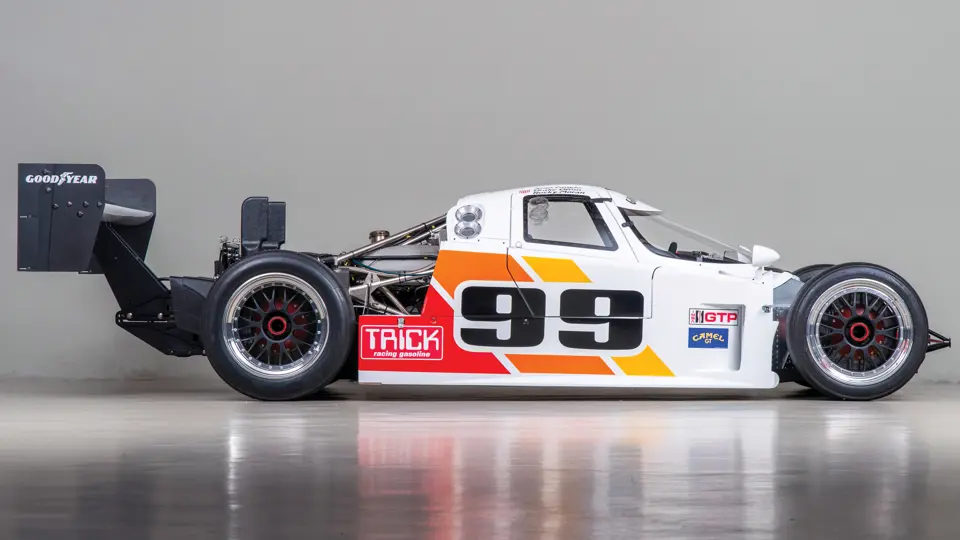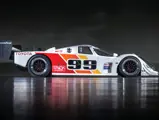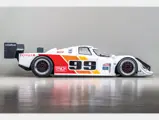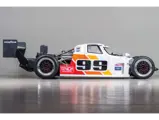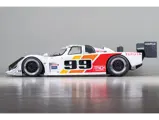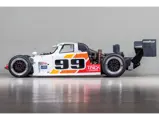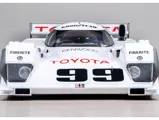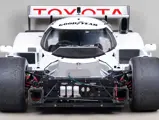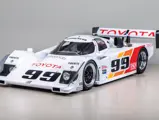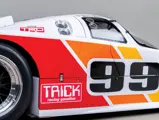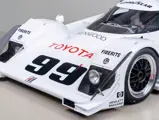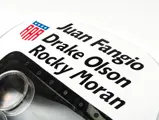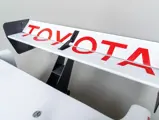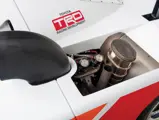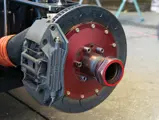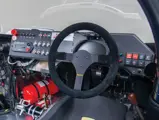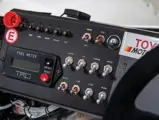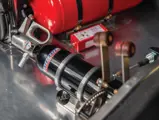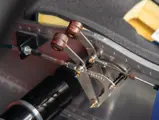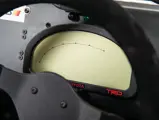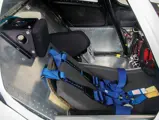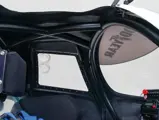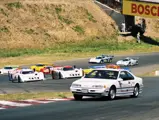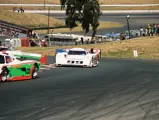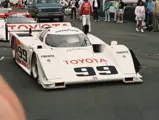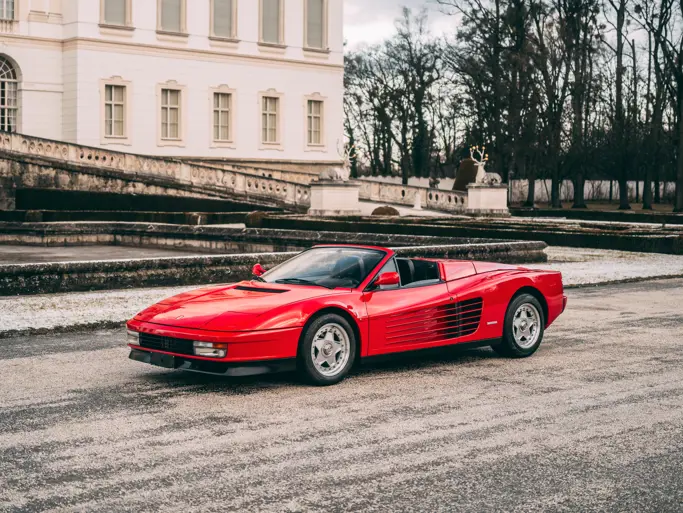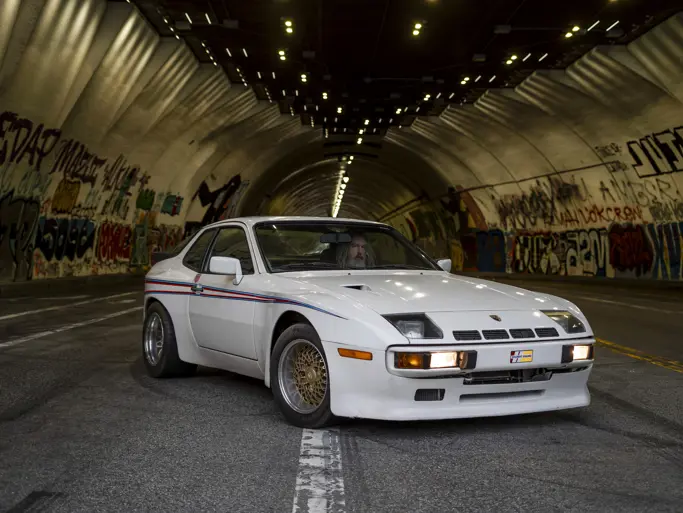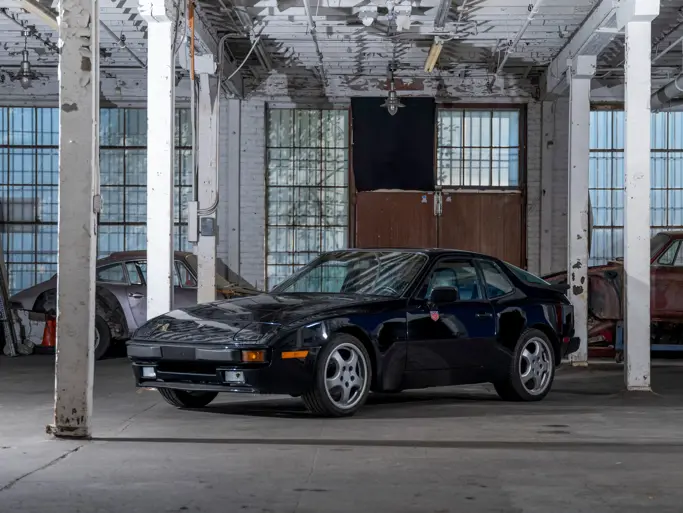
1990 AAR-Toyota Eagle HF89
{{lr.item.text}}
$900,000 - $1,200,000 USD | Not Sold
{{bidding.lot.reserveStatusFormatted}}
- Driven by Juan Manuel Fangio II to Toyota’s first IMSA GTP win
- Built and designed by Dan Gurney’s All American Eagles
- Recent and extensive race-preparation by Canepa
- Provisionally accepted for the 2019 Monterey Historics
The All American Racers traces its roots back to Goodyear’s desire in the mid-1960s for a racing car that would topple arch-rival Firestone in the Indianapolis 500. Goodyear looked to Dan Gurney and Carroll Shelby, who advocated for a Formula 1 car that could proudly wave the American flag on the international stage.
The task was a daunting one. The U.S. produced talented drivers, but the last one to win behind the wheel of an American car was Jimmy Murphy in a Duesenberg at the 1921 French Grand Prix. AAR debuted its first car at the 1966 Belgian Grand Prix, the Len Terry-designed Eagle Mark I. Though AAR was based in Southern California, the sophisticated race car had more flags to wave than just the American Stars and Bars, however, as both Terry and the Eagle Mk I’s engines were British.
The Eagle Mk I set the stage for AAR’s next four-plus decades. In the early 1980s, Gurney’s team began a relationship with Toyota to help the Japanese automaker promote its sporty Celica in the IMSA GT Championship. The team did well, earning Drivers’ and Constructors’ Championships in 1987. The next year, AAR moved into IMSA GTP racing for 1989. IMSA approved the Toyota Dome 88C chassis for GTP, giving AAR the green light for chassis designer Ron Hopkins and aerodynamics guru Hiro Fujimori to collaborate on a new car.
The result was the Eagle HF89. Its name derived from Hopkins’ and Fujimori’s surnames and the debut year, although it later became known as the Eagle Mk II in a nod to its importance for AAR. The HF89 is ultra-rigid, with an aluminum monocoque with a honeycomb center for extra strength. A carbon composite body wrapped around its 2,140-cc GTO Celica-derived dual-overhead camshaft turbocharged four-cylinder engine mounted on a separate rear sub-frame. A Hewland six-speed manual transmission sent power to the wheels via a stiff, double-wishbone suspension with outboard-mounted coil-springs over dampers providing race-ready firmness.
AAR signed Juan Manuel Fangio II to pilot one of the cars it developed, but the 1989 season proved fraught with difficulties due to the hopped-up engine’s reliability. The team spent the offseason revising the bodywork and improving engine cooling. Their work paid off: Fangio racked up Toyota’s first GTP win when he nabbed pole position and never gave up the lead in a grueling race against Geoff Brabham’s Nissan at Heartland Park in Topeka, Kansas. He would later win at Sears Point, San Antonio, and Del Mar, finishing in 2nd place behind Brabham, overall.
Fangio was behind the wheel again at the beginning of the 1991 season when he won at Watkins Glen before the new Mk III racer was ready for him later in the season. HF89’s tenure was not over, however, as it was passed on to Rocky Moran.
Since being retired from AAR’s team 25 years ago, HF89 has remained very well preserved. AAR Toyota racing veteran Dennis Aase bought the car from the team and later had it refinished to its Topeka-winning livery. It was later displayed at the Museo Fangio in Balcarce, Argentina, as a showpiece. During its time away from the track, its disuse left it in attractive, but non-running condition.
Its current owner acquired the HF89 in 2015 and commissioned Canepa to revive the Eagle to become a competitive vintage racer. The extensive restoration came at a cost of more than $800,000 and 3,500 man-hours to fully refurbish its potent powertrain. A new ECU allows its 2,143-cc turbo-four to make a healthy 680 hp, once again. The car’s advanced chassis has been thoroughly re-examined to ensure that it is as rigid and safe today as it was 30 years ago. Included are also two sets of new wheels for use in competition, along with the originals for showing.
The Eagle HF89 made its vintage racing debut in 2016 at the Rolex Monterey Pre-Reunion and a few days later at the Reunion. It has subsequently been driven at the Sonoma Historic Motorsports Invitational, the 2017 Rolex Reunion, and the 2018 Rolex Reunion.
Presented in race-prepared condition, the Eagle HF89 has been provisionally accepted for the 2019 Monterey Historics. Additionally, the seller has applied for current FIA papers to facilitate eligibility for many international Group C racing events.


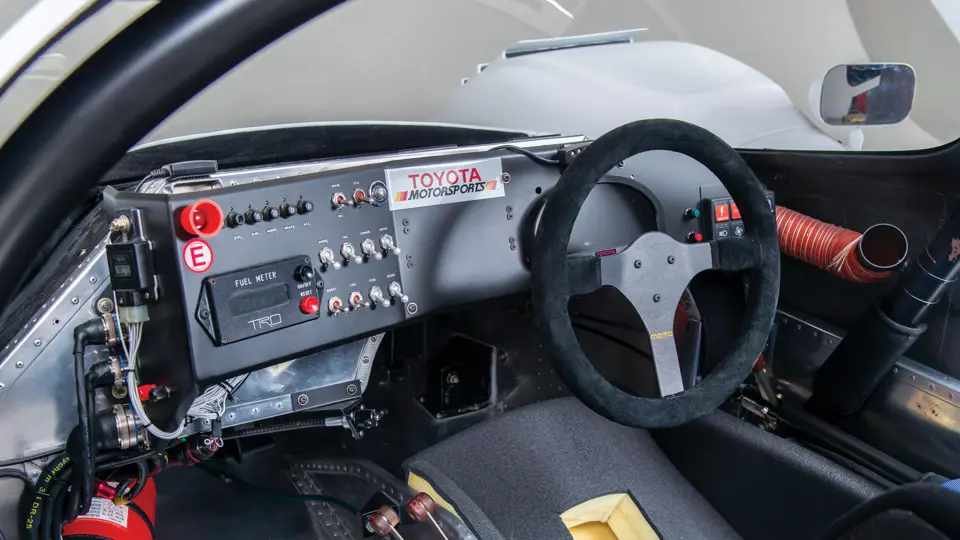

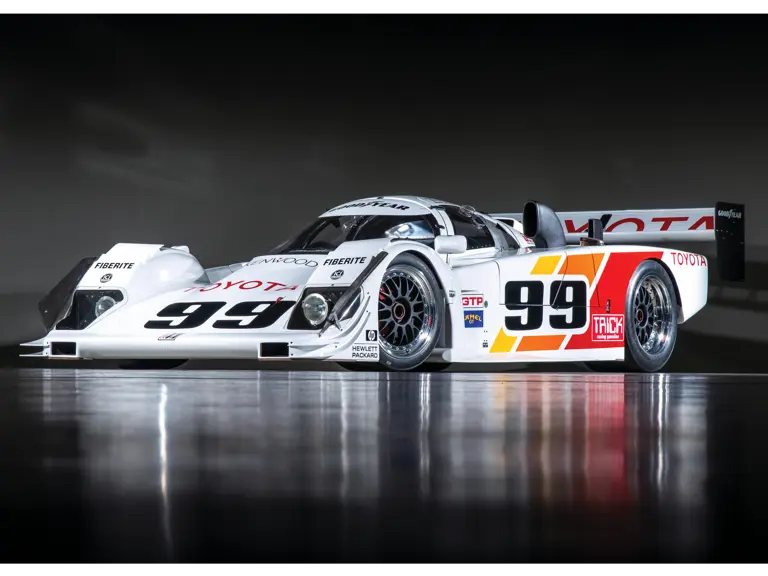
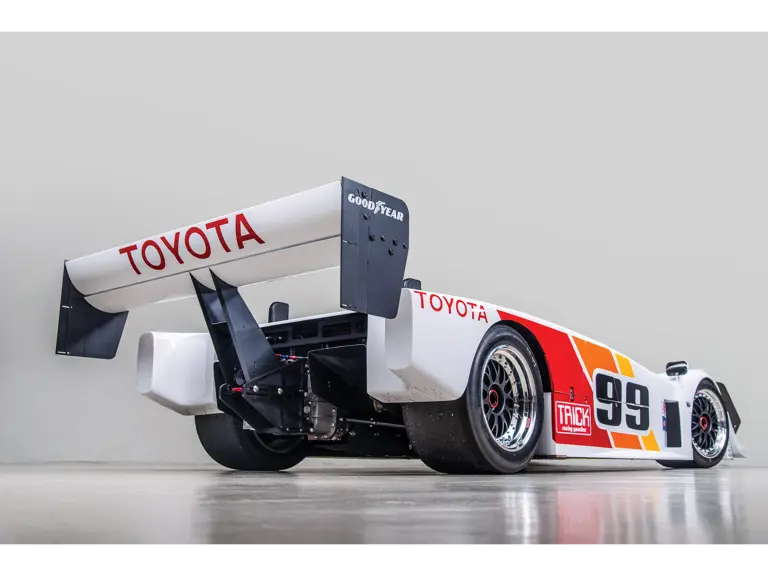
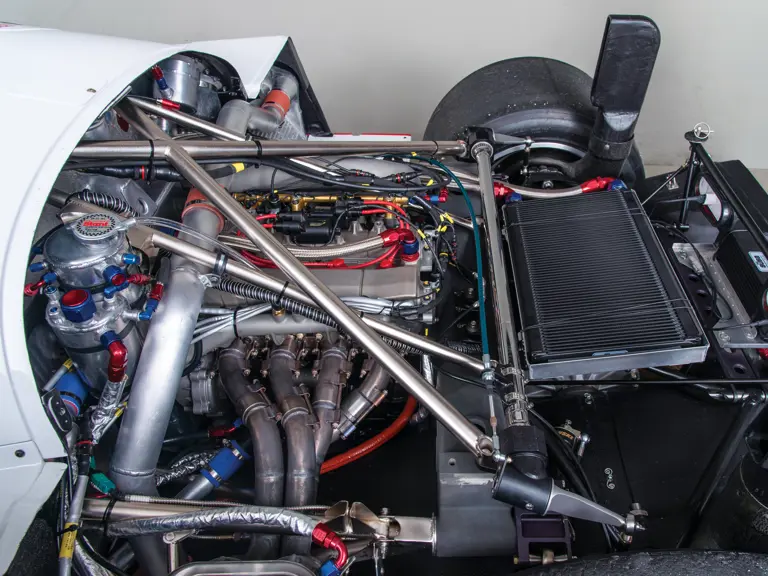
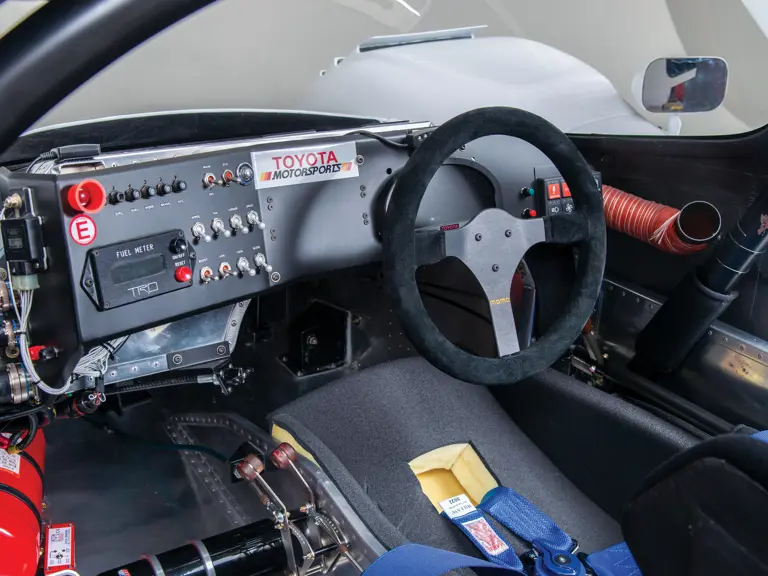
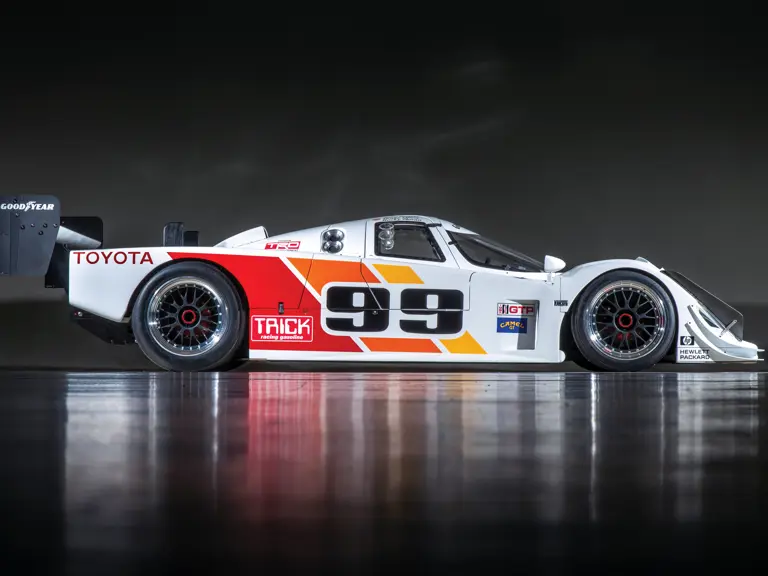
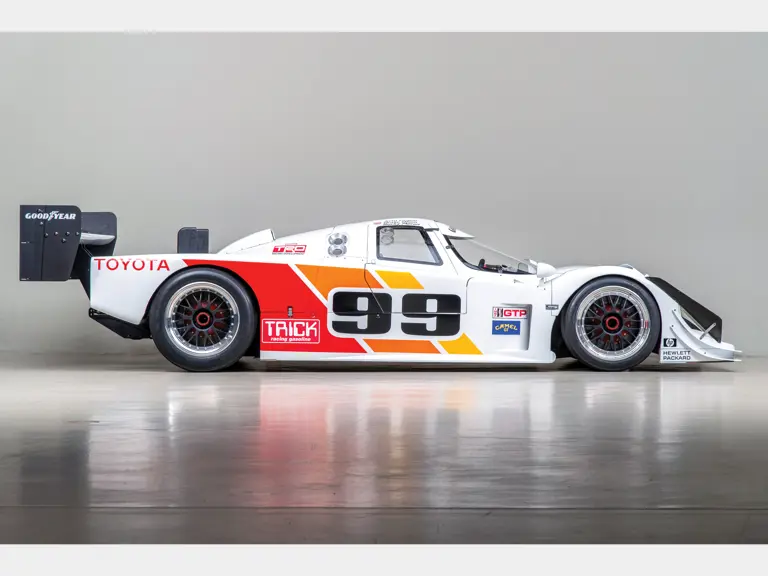
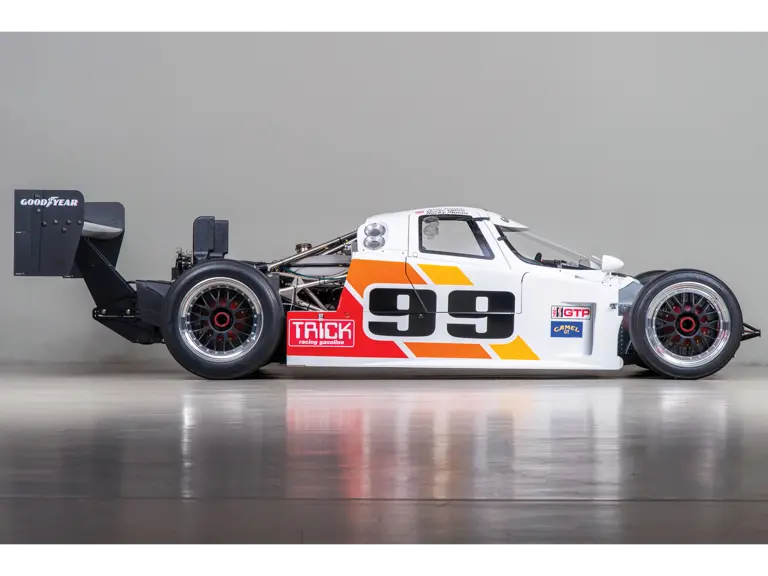
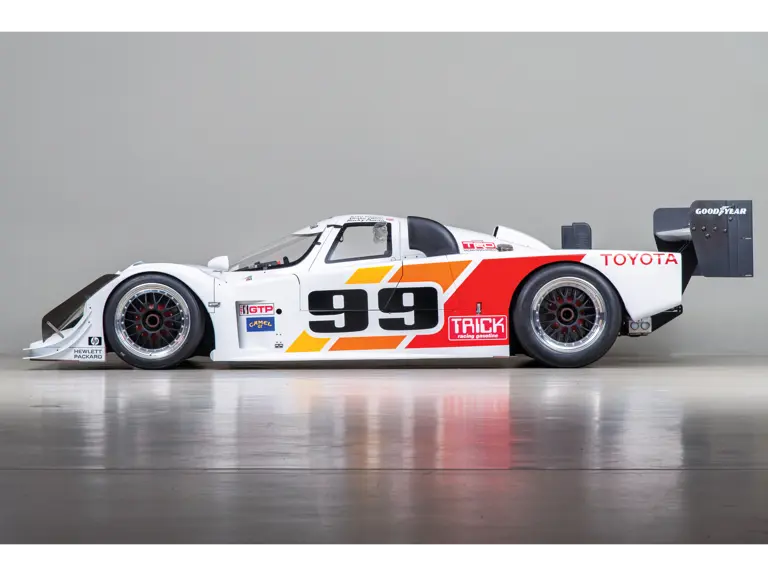
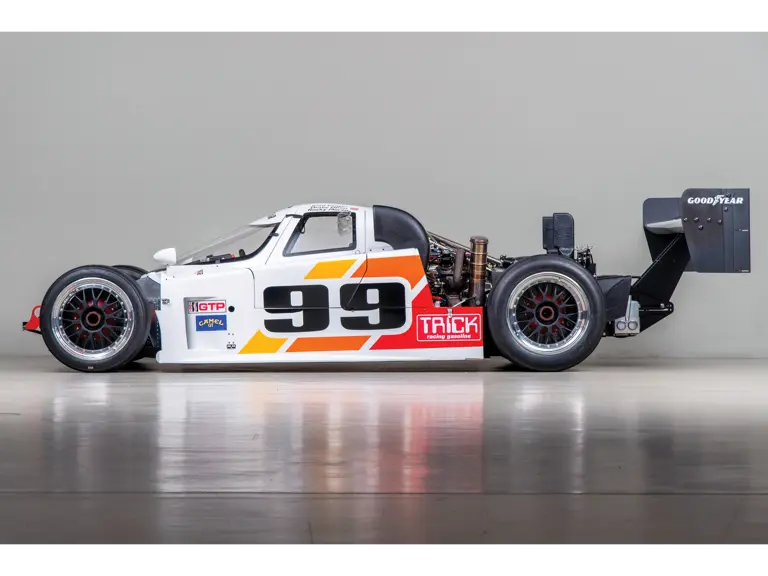
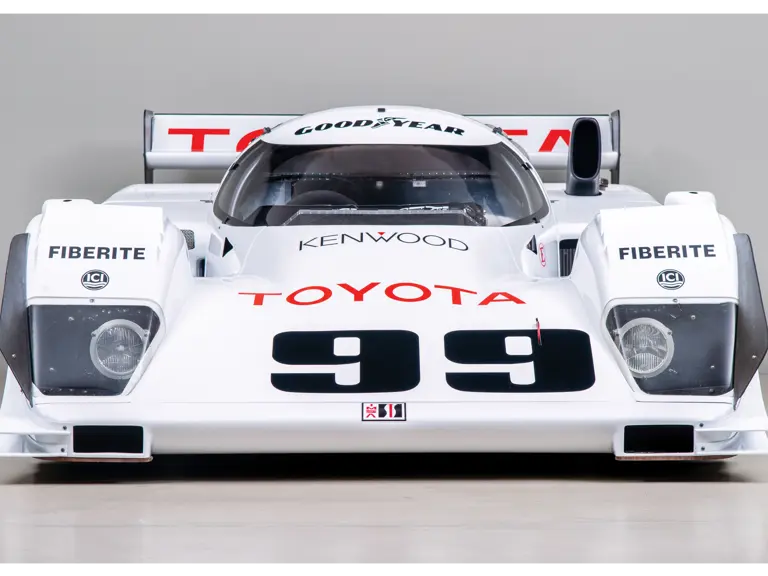
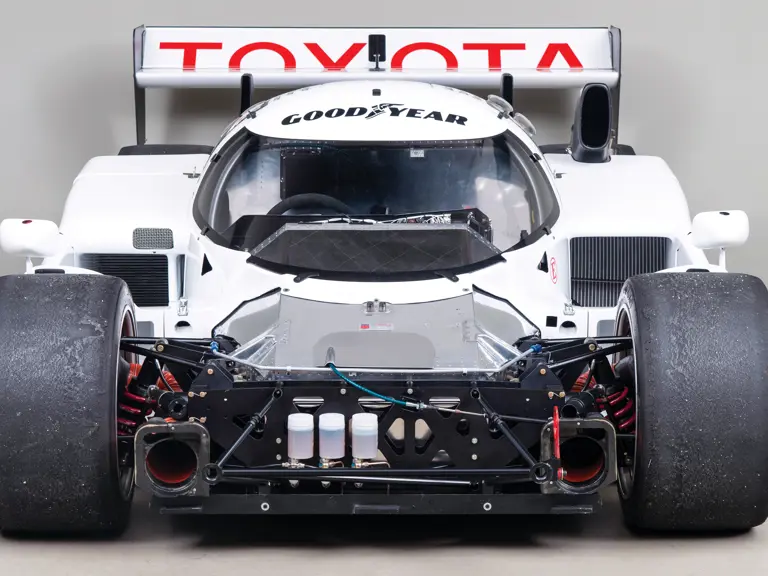
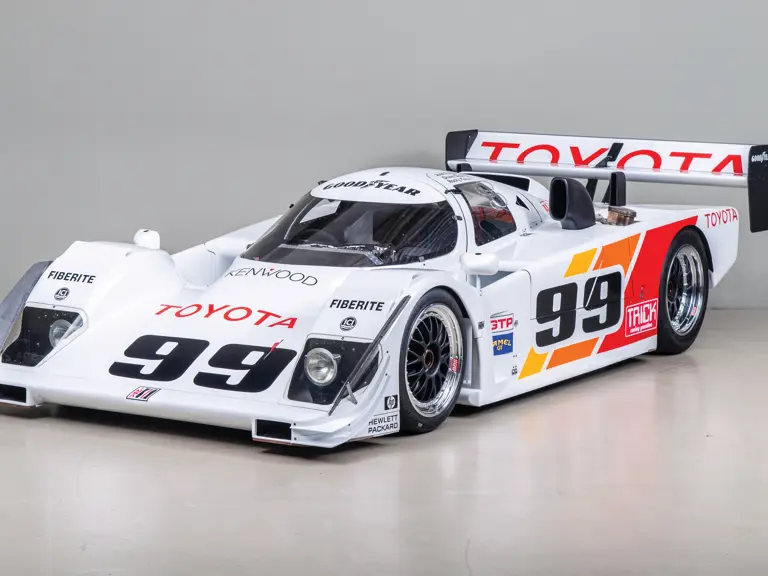
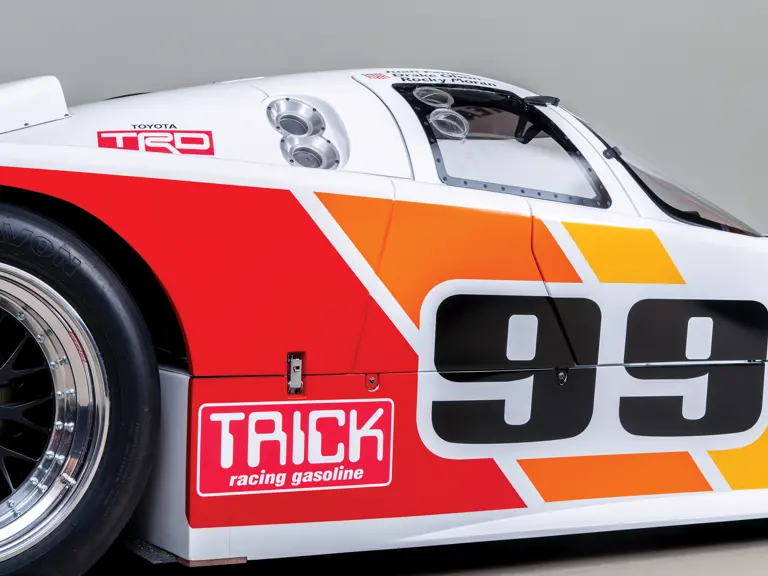
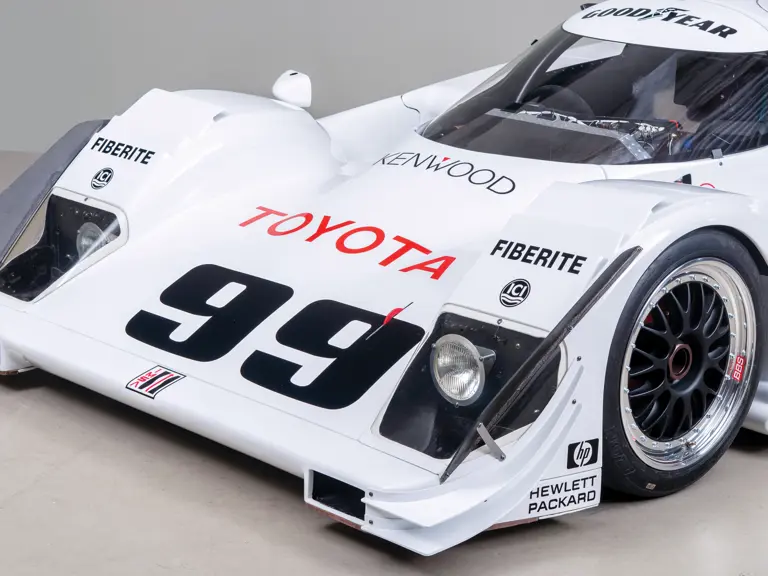
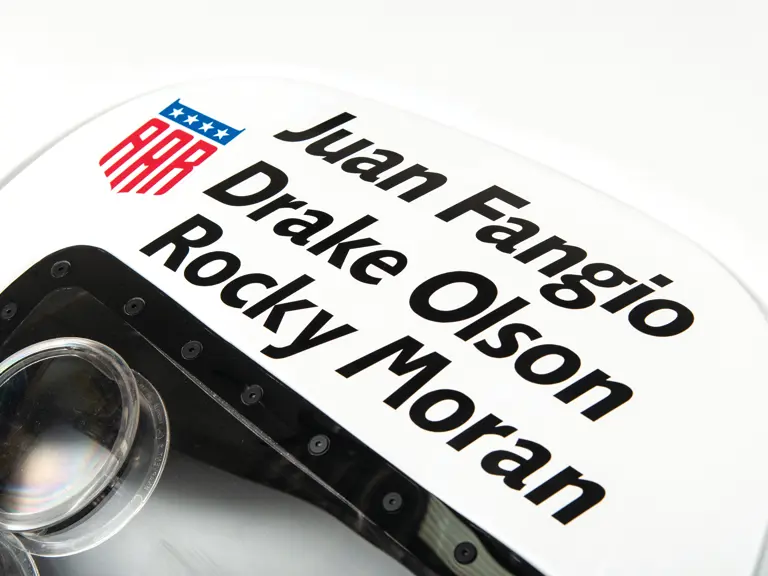
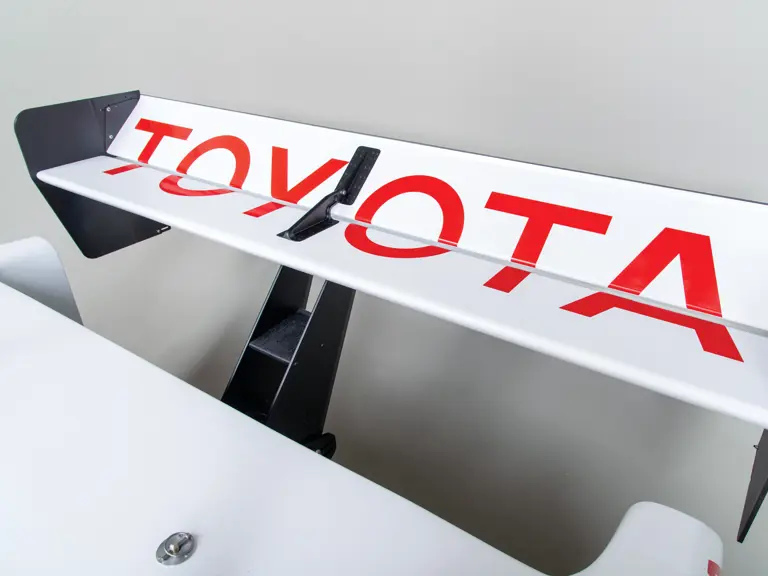
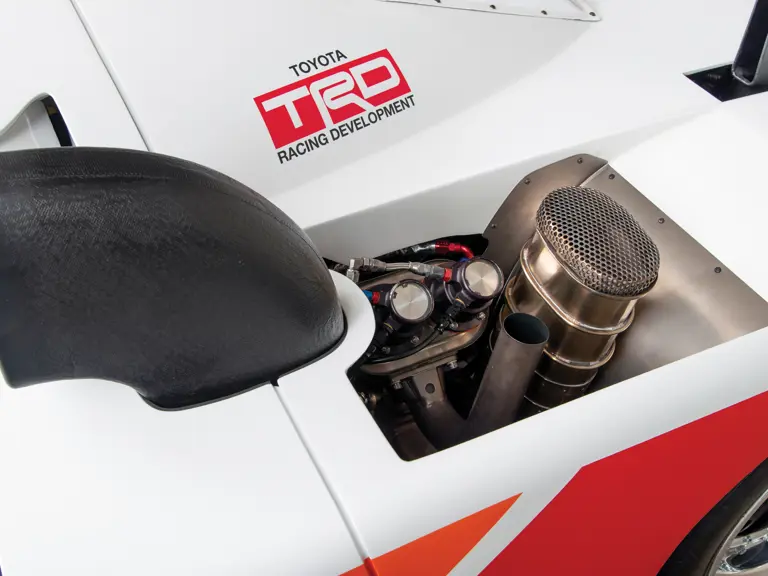
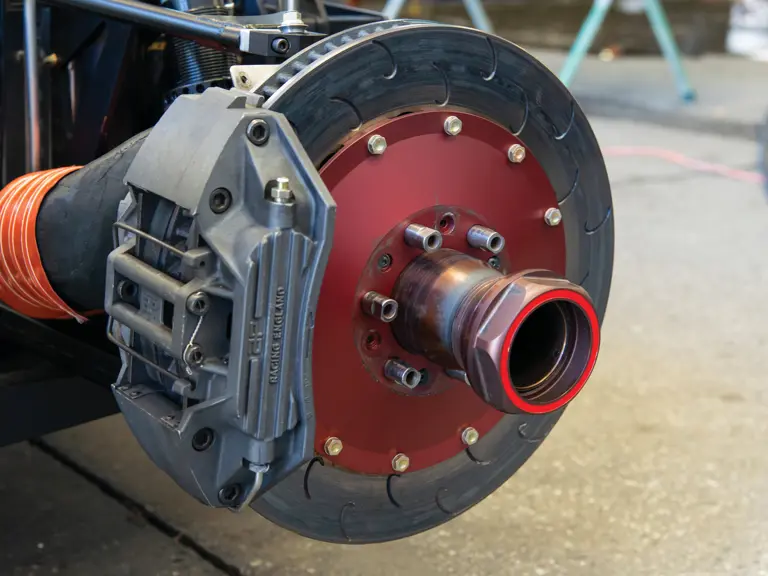
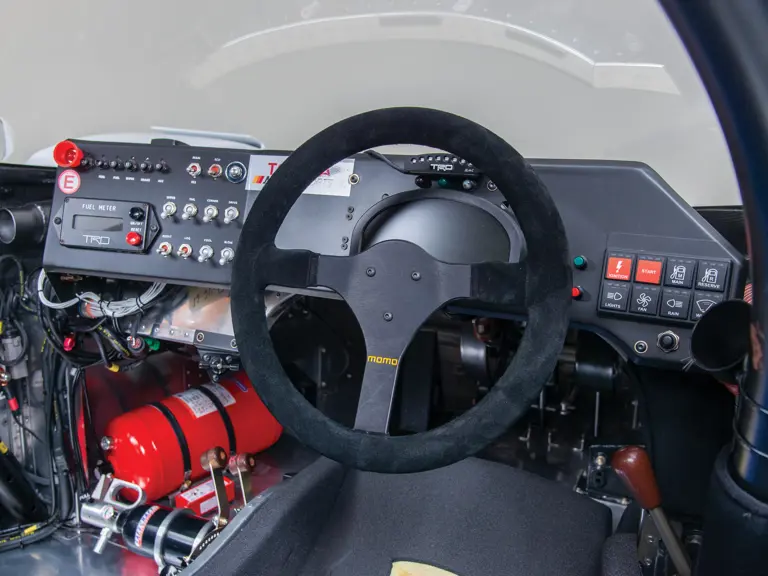
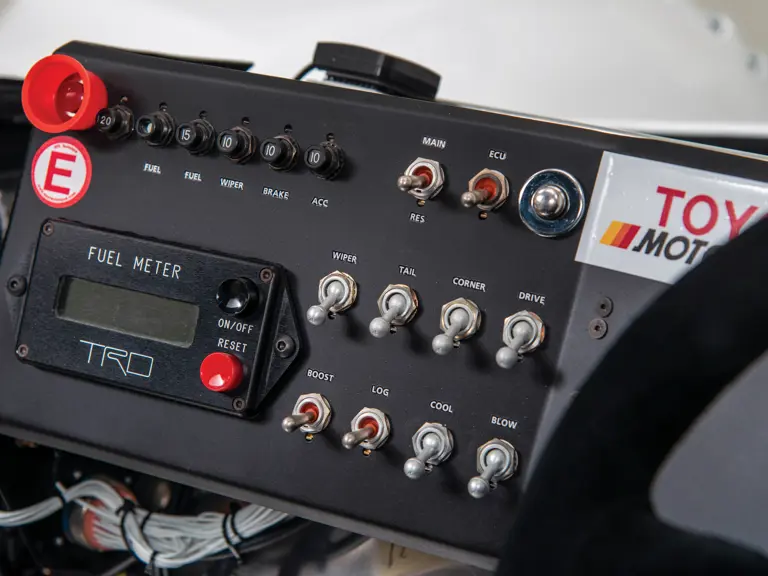
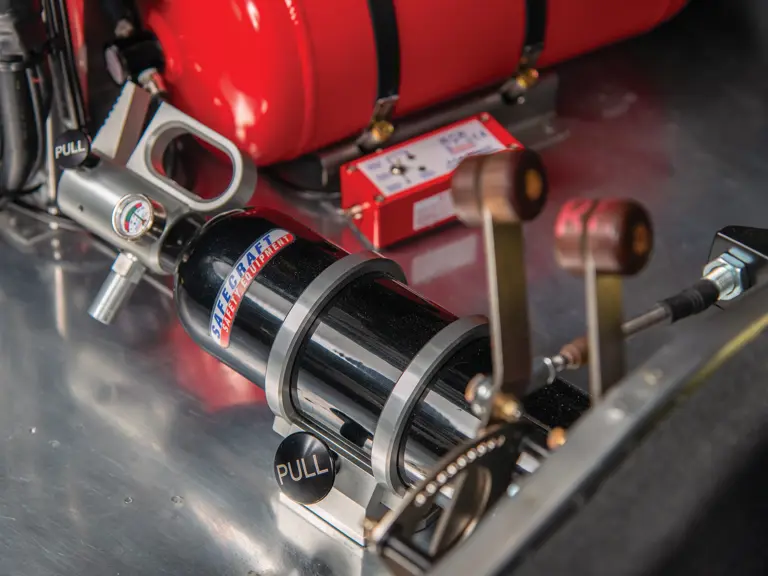
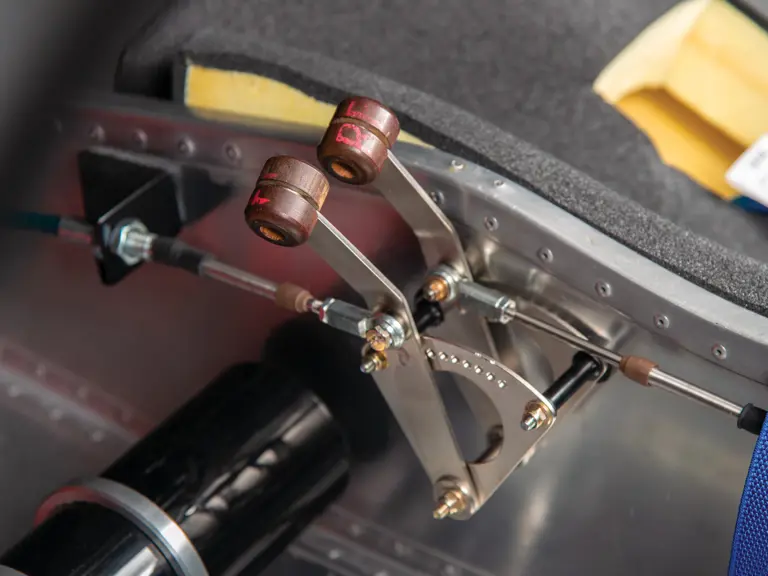
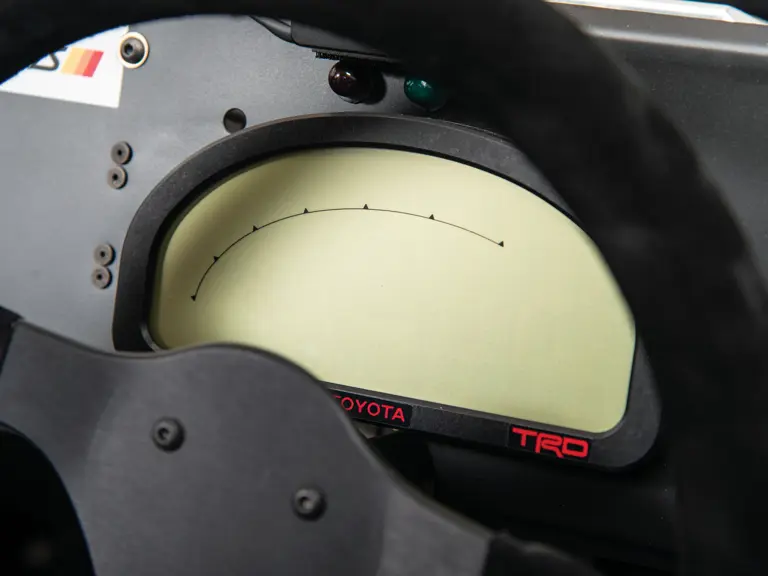
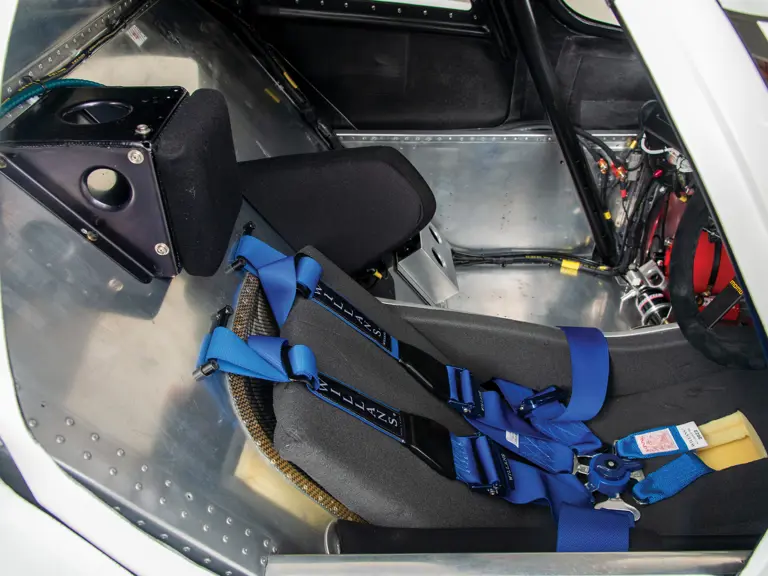
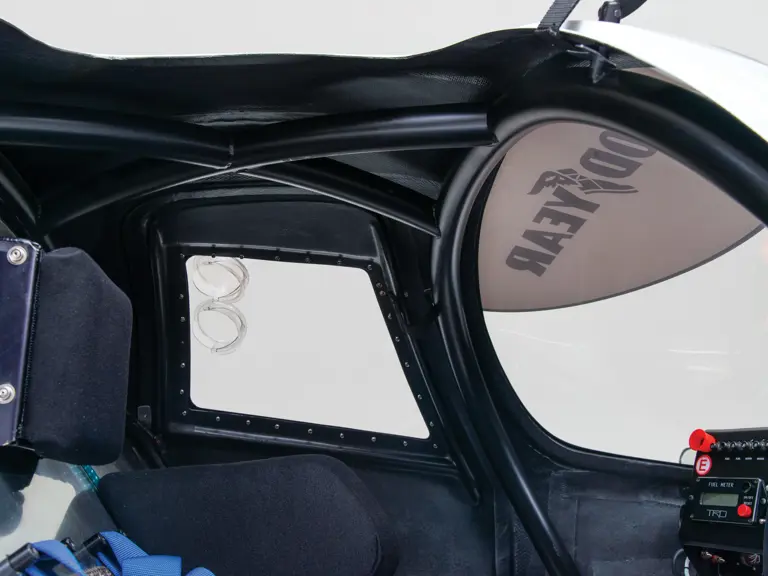
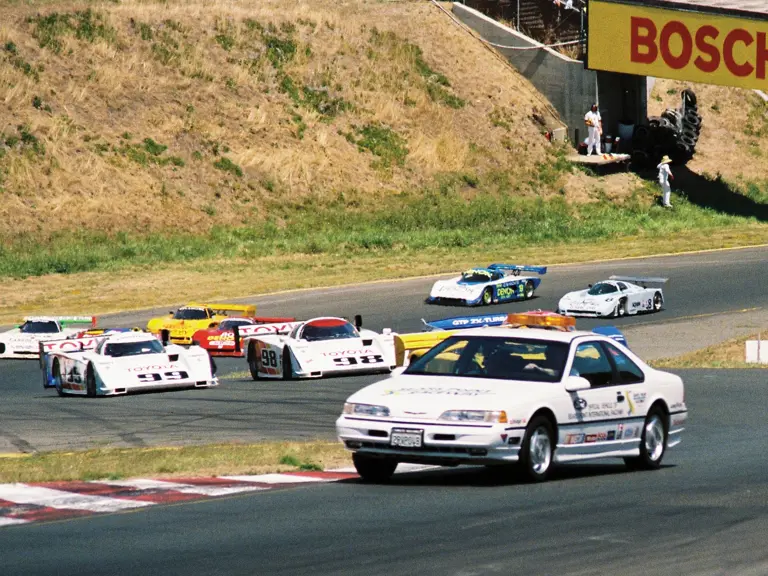
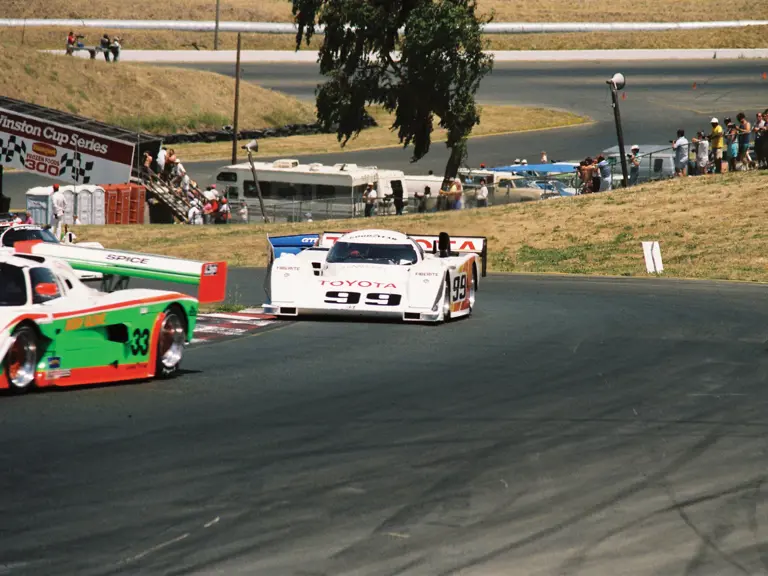
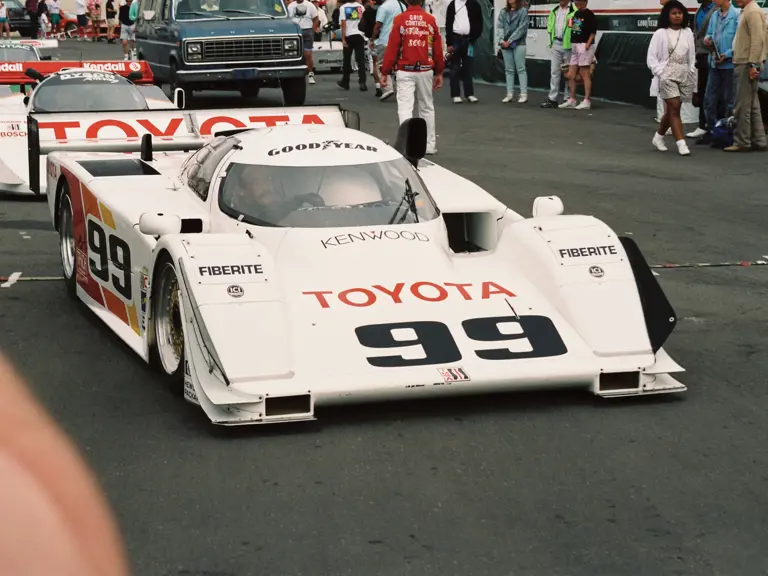
 | Amelia Island, Florida
| Amelia Island, Florida
